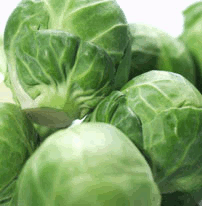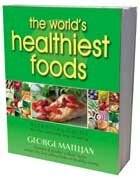




Why Organic Foods are Better for Health
Can organic foods really improve my health?Yes. Organically grown food is your best way of reducing exposure to toxins used in conventional agricultural practices. These toxins include not only pesticides, many of which have been federally classified as potential cancer-causing agents, but also heavy metals such as lead and mercury, and solvents like benzene and toluene. Minimizing exposure to these toxins is of major benefit to your health. Heavy metals damage nerve function, contributing to diseases such as multiple sclerosis and lowering IQ, and also block hemoglobin production, causing anemia. Solvents damage white cells, lowering the immune system's ability to resist infections. In addition to significantly lessening your exposure to these health-robbing substances, organically grown foods have been shown to contain substantially higher levels of nutrients such as protein, vitamin C and many minerals.
How do organic foods benefit cellular health?
DNA: Eating organically grown foods may help to better sustain health since recent test tube animal research suggests that certain agricultural chemicals used in the conventional method of growing food may have the ability to cause genetic mutations that can lead to the development of cancer. One example is pentachlorophenol (PCP) that has been found to be able to cause DNA fragmentation in animals. Mitochondria: Eating organically grown foods may help to better promote cellular health since several agricultural chemicals used in the conventional growing of foods have been shown to have a negative effect upon mitochondrial function. These chemicals include paraquat, parathion, dinoseb and 2-4-D which have been found to affect the mitochondria and cellular energy production in a variety of ways including increasing membrane permeability, which exposes the mitochondria to damaging free radicals, inhibiting a process known as coupling that is integral to the efficient production of ATP. Cell Membrane: Since certain agricultural chemicals may damage the structure and function of the cellular membrane, eating organically grown foods can help to protect cellular health. The insecticide endosulfan and the herbicide paraquat have been shown to oxidize lipid molecules and therefore may damage the phospholipid component of the cellular membrane. In animal studies, pesticides such as chlopyrifos, endrin and fenthion have been shown to over stimulate enzymes involved in chemical signaling causing imbalance that has been linked to conditions such as atherosclerosis, psoriasis and inflammation.
How can organic foods contribute to children's health?
The negative health effects of conventionally grown foods, and therefore the benefits of consuming organic foods, are not just limited to adults. In fact, many experts feel that organic foods may be of paramount importance in safeguarding the health of our children.
In two separate reports, both the Natural Resources Defense Council (1989) and the Environmental Working Group (1998) found that millions of American children are exposed to levels of pesticides through their food that surpass limits considered to be safe. Some of these pesticides are known to be neurotoxic, able to cause harm to the developing brain and nervous system. Additionally, some researchers feel that children and adolescents may be especially vulnerable to the cancer-causing effects of certain pesticides since the body is more sensitive to the impact of these materials during periods of high growth rates and breast development.
The concern for the effects of agricultural chemicals on children's health seems so evident that even the U.S. government has taken steps to protect our nation's young. In 1996, Congress passed the Food Quality Protection Act requiring that all pesticides applied to foods be safe for infants and children.
Organic foods that are strictly controlled for substances harmful to health can play a major role in assuring the health of our children.
Are organic foods nutritionally superior to conventionally grown foods?
Yes, and significantly more. Proof of their superiority has been demonstrated in numerous studies. In 1998, a review of 34 studies comparing the nutritional content of organic versus non-organic food was published in the peer-reviewed, MEDLINE-indexed journal Alternative Therapies (Volume 4, No. 1, pgs. 58-69). In this review, organic food was found to have higher protein quality in all comparisons, higher levels of vitamin C in 58% of all studies, 5-20% higher mineral levels for all but two minerals. In some cases, the mineral levels were dramatically higher in organically-grown foods-as much as three times higher in one study involving iron content.
Organic foods may also contain more flavonoids than conventionally grown foods, according to Danish research published in the August 2003 issue of the Journal of Agricultural and Food Chemistry. In this study, 16 healthy non-smoking participants ranging in age from 21-35 years were given either a diet high in organically or conventionally grown fruits and vegetables for 22 days, after which they were switched over to the other diet for another 22 days. After both dietary trials, the researchers analyzed levels of flavonoids and other markers of antioxidant defenses in the food and in the participants' blood and urine samples. Results indicated a significantly higher content of the flavonoid quercitin in the organic produce and in the subjects' urine samples when on the organic produce diet, plus the subjects' urinary levels of another flavonoid, kaempferol, were also much higher when on the organically grown compared to the conventionally grown diet.(October 4, 2003)
What substances do we avoid by eating organic food?
Over 3,000 high-risk toxins routinely present in the U.S. food supply are, by law, excluded from organic food, including: Pesticides: By far the largest group of toxins to be largely prohibited from organically grown foods are synthetic pesticides, which are found virtually everywhere else in the food supply. Several hundred different chemicals and several thousand brand-name pesticide products are legally used in commercial food production in the U.S. Act of 1992; the Environmental Protection Agency had classified 73 pesticides authorized for agricultural use as potential carcinogens (cancer-causing agents). And pesticides don't just remain where they are applied. A 1996 study by the Environmental Working Group found 96% of all water samples taken from 748 towns across the U.S. contained the pesticide atrazine, and at least 20 different chemical pesticides are routinely present in municipal tap water across the U.S. Heavy metals: The toxic metals cadmium, lead, and mercury enter the food supply through industrial pollution of soil and groundwater and through machinery used in food processing and packaging. Cadmium, which can be concentrated in plant tissues at levels higher than those in soil, has been linked to lung, prostate and testicular cancers. Despite lead's long-recognized serious adverse impact on health, especially that of young children, lead solder is still used to seal tin cans, imparting the lead residues found in many canned foods. Even low levels of lead are harmful and are associated with decreased intelligence, impaired neurobehavioral development, decreased stature and growth, and impaired hearing. Mercury is toxic to brain cells and has been linked to autism and Alzheimer's disease. Solvents: Used to dissolve food components and produce food additives, solvents are also virtually omnipresent in commercially processed food. Solvents, such as benzene and toluene have been linked to numerous cancers. Benzene, specifically, has been repeatedly associated with rheumatoid arthritis-an auto-immune condition involving pain and degeneration in the joints that affects over 2 million adults in the U.S.
Not only are these toxic substances harmful singly, but when combined, as they are in commercially grown and processed food, and in the human body where they accumulate, their effects have been found to be magnified as much as a 1,000-fold.


